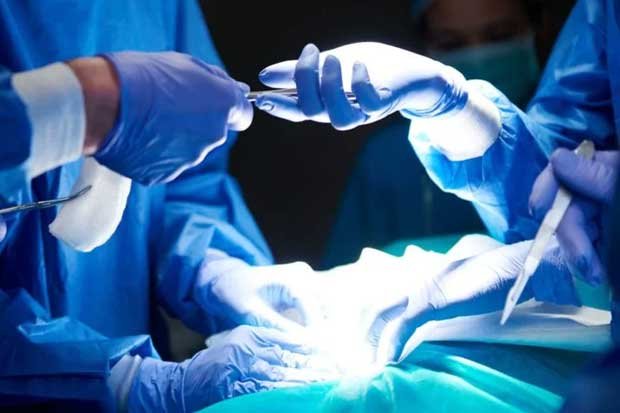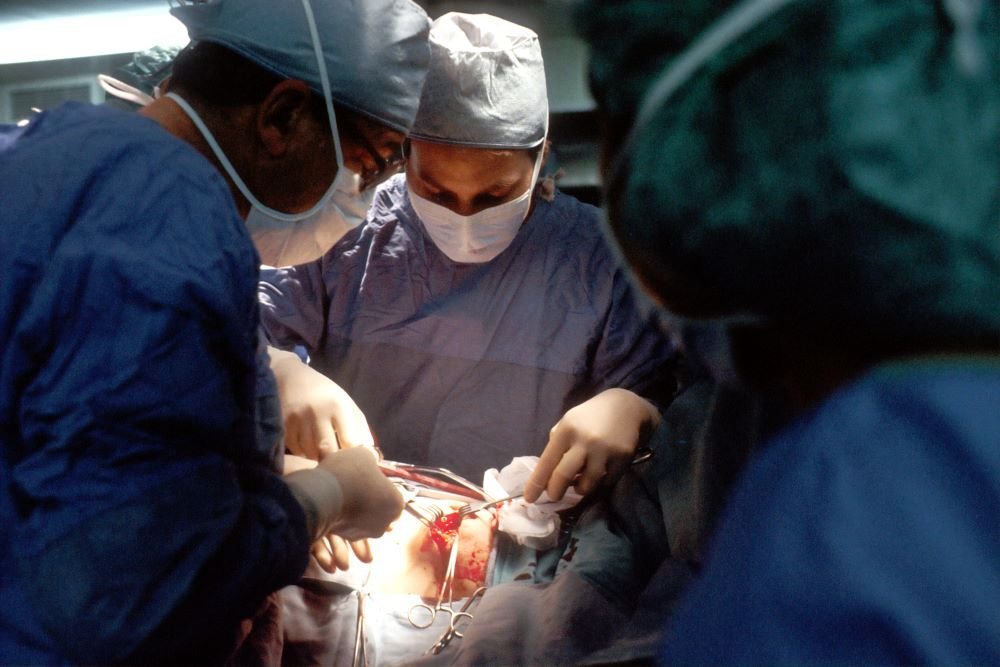What is the impact of lung cancer surgery?
Lung cancer surgery can significantly impact a person’s health and overall well-being. Here are some common effects and benefits of lung cancer surgery:
- Cancer removal: The primary goal of lung cancer surgery is to remove the cancerous tumour from the lungs, which can improve the chances of survival and potentially offer a cure for early-stage lung cancer.
- Increased life expectancy: Surgery is often recommended for early-stage lung cancer, which can significantly increase the chances of long-term survival. However, the specific impact on life expectancy will vary depending on various factors, including the stage of cancer, the individual’s overall health, and the surgery’s success.
- Reduced risk of cancer recurrence: Removing the cancerous tumour through surgery can decrease the chances of cancer returning. Adjuvant therapies like chemotherapy or radiation may also be used with surgery to reduce the risk of recurrence further.
It’s important to note that the impact of lung cancer surgery may vary for each individual, and the recovery process can take time. Rehabilitation and follow-up care, including physical therapy and lifestyle modifications, can help maximise the benefits and support overall recovery after surgery. It’s best to consult with a healthcare professional who can provide personalised information based on specific circumstances.
What is the best diet to recover from lung cancer surgery?
Here are some suggestions that may be helpful:
- Focus on a balanced diet: Eat a variety of nutrient-dense foods to support healing and overall health. Include a combination of fruits, vegetables, whole grains, lean proteins, and healthy fats in your meals.
- Increase protein intake: Protein is important for tissue repair and immune system function. Include sources such as lean meats, poultry, fish, beans, legumes, eggs, and dairy products in your diet.
- Stay hydrated: Drink enough fluids, such as water or herbal teas, to stay hydrated. Adequate hydration is crucial for recovery and overall well-being.
- Boost antioxidant intake: Antioxidants can help reduce inflammation and oxidative stress. Include a variety of colourful fruits and vegetables, such as berries, citrus fruits, leafy greens, and cruciferous vegetables in your diet.
- Consider omega-3 fatty acids: Omega-3 fatty acids found in fatty fish, walnuts, chia seeds, and flaxseeds have anti-inflammatory properties that may aid recovery.
- Avoid processed foods: Minimize your intake of processed foods high in added sugars, unhealthy fats, and preservatives, as they may impair healing and overall health.
Remember, the best diet for you will depend on your needs and medical condition. Work with your healthcare team to create a personalised plan that suits your unique circumstances.
What is the role of physical activity after lung cancer surgery?
The role of physical activity in lung cancer recovery is significant. Engaging in regular physical activity has been shown to have several benefits for individuals who have undergone treatment for lung cancer.
- Improved physical fitness: Physical activity helps improve overall physical fitness by increasing cardiovascular endurance, muscle strength, and flexibility. This can enhance quality of life and aid in the recovery process.
- Enhanced lung capacity: Lung cancer often affects lung function, leading to decreased lung capacity. Physical activity, including aerobic exercises and breathing exercises, can help improve lung efficiency and increase lung capacity.
- Reduced fatigue: Fatigue is a common side effect of lung cancer treatment. Engaging in regular physical activity can help reduce fatigue and increase energy levels.
- Psychological well-being: Physical activity has been shown to have positive effects on mental health. It can reduce symptoms of depression, anxiety, and stress, which are often experienced by lung cancer patients. Regular exercise can improve overall mood and well-being.
- Immune system enhancement: Physical activity has been found to strengthen the immune system, which plays a crucial role in fighting off infections and protecting against cancer recurrence.
- Weight management: Maintaining a healthy weight is important for recovery from lung cancer. Physical activity and a balanced diet can aid in weight maintenance or loss, depending on individual needs.
It is important to consult with a healthcare professional before starting any exercise program, especially for individuals recovering from lung cancer. They can provide personalised guidance and recommendations based on an individual’s condition and treatment history.
How do I manage Emotional Well-being and Mental Health after lung cancer surgery?
Managing emotional well-being and mental health after lung cancer surgery is crucial for overall recovery and a positive outlook. Here are some suggestions:
- Seek support: Maintain a strong support system by sharing your feelings and concerns with loved ones, friends, or support groups specifically for cancer survivors. Their understanding and empathy can make a significant difference.
- Communicate with your healthcare team: Stay in touch with your healthcare professionals, including your surgeon and oncologist, regarding any emotional and mental health challenges you may be facing. They can provide appropriate guidance and resources for coping.
- Engage in therapy: Consider working with a mental health professional, such as a therapist or counsellor, specialising in cancer survivorship or post-surgical recovery. They can help you navigate and cope with the emotional impact of the surgery.
- Practice self-care: Prioritize self-care activities that promote relaxation, stress reduction, and overall well-being. This may include meditation, deep breathing, yoga, gentle exercises, or hobbies you enjoy. Take time for yourself regularly.
- Maintaining a healthy lifestyle: A balanced diet, regular exercise, and adequate sleep can positively impact mental health. Consult with your healthcare team about any dietary or exercise restrictions due to your surgery.
- Manage stress: Identify stressors in your life and develop strategies to manage them effectively. Consider techniques like journaling, practising mindfulness, or engaging in stress-reducing activities like walking in nature.
- Accept and express emotions: Allow yourself to experience and express emotions without judgment. Feeling fear, sadness, or anxiety is normal after a major surgery. Talk openly about your emotions and seek professional help if needed.
- Monitor for signs of depression or anxiety: Monitor for symptoms of depression, anxiety, or other mental health disorders. If you experience persistent sadness, loss of interest, extreme worry, or difficulty coping, contact your healthcare provider for further assessment and support.
Remember, recovering from lung cancer surgery is a process, and being patient with yourself is essential. Take small steps each day towards emotional well-being and mental health, and know that support is available to you.
How important is it to quit smoking after lung cancer surgery?
Quitting smoking after lung cancer surgery is extremely important. Smoking is a leading cause of lung cancer, and continuing to smoke after surgery can greatly diminish the chance of successful treatment and recovery.
Here are a few reasons why quitting smoking is crucial after lung cancer surgery:
- Healing and recovery: Smoking can impede the healing process and increase the risk of complications after surgery. By quitting smoking, you allow your body to heal more effectively and reduce the chances of infection or other post-operative issues.
- Treatment effectiveness: Continuing to smoke can reduce the effectiveness of treatments like chemotherapy or radiation therapy. Quitting smoking can enhance the body’s response to these treatments, increasing their potential for success.
- Recurrence prevention: Smoking after lung cancer surgery significantly increases the risk of cancer recurrence. By quitting smoking, you reduce the chances of developing new tumours or cancer returning.
- Overall health benefits: Quitting smoking has numerous health benefits outside of cancer prevention. It can improve lung function, reduce the risk of respiratory infections, and decrease the likelihood of other smoking-related diseases, such as heart disease and stroke.
While quitting smoking can be challenging, various resources and support systems are available to help. It is essential to consult with healthcare professionals who can provide personalised advice and strategies to quit smoking successfully.







